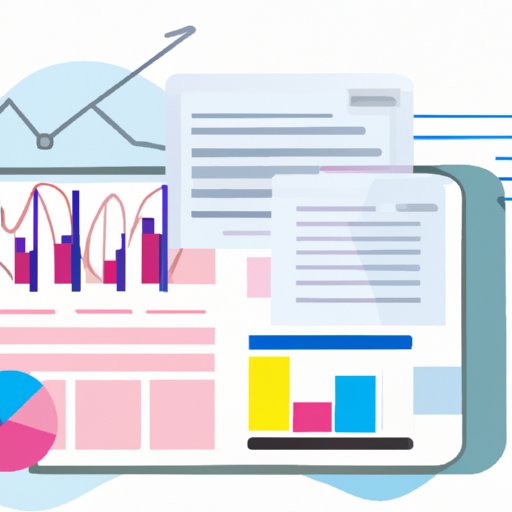Introduction
Starting an online business is easier than ever before. With the right advice and a bit of hard work, you can launch a successful venture that will bring in revenue and help you meet your financial goals. But before you get started, it’s important to understand the basics of what an online business entails and the advantages it offers.
An online business is any business that operates primarily through the internet. This includes selling products or services, providing information, or offering services such as consulting, coaching, or creating digital products. The key benefit of an online business is that it allows you to reach a global audience and generate income from anywhere with an internet connection.
Research Your Market
The first step in starting an online business is to research your target market. This involves identifying a profitable niche and conducting market research to learn more about the needs of potential customers. By researching your market, you’ll be able to create a product or service that meets customer demands and positions you for success.
Start by identifying a profitable niche. This could be anything from pet care products to handmade jewelry. Next, use market research tools to analyze customer needs. Look at online forums, review sites, and other sources of customer feedback to learn more about what they’re looking for in a product or service.
Finally, analyze customer behavior to better understand their buying habits. Use surveys, interviews, and focus groups to gain insight into why customers make certain purchases and how they prefer to shop online.
Develop a Business Plan
Once you’ve identified a profitable niche and conducted market research, it’s time to develop a business plan. This document should include your objectives, strategies, and roadmap for success. It should also include a financial forecast and a detailed budget.
When setting objectives, consider both short-term and long-term goals. For example, you might set a goal of increasing sales by 10% within the next six months. You should also define strategies for meeting these goals, such as investing in digital marketing or launching a loyalty program.
Finally, create a roadmap for success. This should include actionable steps for achieving your goals, such as hiring additional staff or upgrading your website. A business plan should also include a financial forecast and a detailed budget.
Choose Your Platform
Once you’ve developed a business plan, it’s time to decide on the type of online business you want to start. Do you want to open an ecommerce store? Sell digital products? Offer services? Once you’ve made this decision, select a platform to build it. Popular options include Shopify, Squarespace, and WordPress.
Register Your Domain Name & Set Up Hosting
Before you can launch your online business, you need to secure a domain name and set up web hosting. Your domain name is the address people will use to access your website, so it’s important to choose one that’s easy to remember and reflects your brand. When selecting a hosting provider, look for one that offers reliable support and plenty of storage space.
Design Your Website
Now it’s time to create an attractive, user-friendly website to showcase your products or services. Include an intuitive navigation structure to make it easy for visitors to find what they’re looking for. Make sure your website is optimized for mobile devices and search engines, and add features like live chat and social media integration to increase engagement.
Promote Your Business
Once your website is up and running, it’s time to start promoting your business. Use traditional and digital marketing tactics to increase brand awareness and drive sales. Consider running paid ads, participating in influencer campaigns, and optimizing your content for search engines.
You should also focus on building relationships with customers. Offer incentives like discounts and loyalty programs to encourage repeat purchases. And don’t forget to engage with customers on social media to foster a sense of community and strengthen your brand.
Monitor Performance & Adjust Strategies
Finally, track key performance metrics to monitor the success of your online business. Use analytics tools to measure website traffic, customer engagement, and sales. Review these metrics regularly and adjust your strategies accordingly.
For example, if you’re not seeing the desired results from your digital marketing efforts, try experimenting with different tactics or adjusting your budget. On the other hand, if your website is attracting lots of visitors but few are converting into customers, consider revising your page design or adding customer reviews.
Conclusion
Starting an online business is a great way to reach a global audience and generate income. To get started, research your market, develop a business plan, choose a platform, register a domain name, set up hosting, design a website, and promote your business. Finally, monitor performance metrics and adjust your strategies accordingly.
(Note: Is this article not meeting your expectations? Do you have knowledge or insights to share? Unlock new opportunities and expand your reach by joining our authors team. Click Registration to join us and share your expertise with our readers.)
